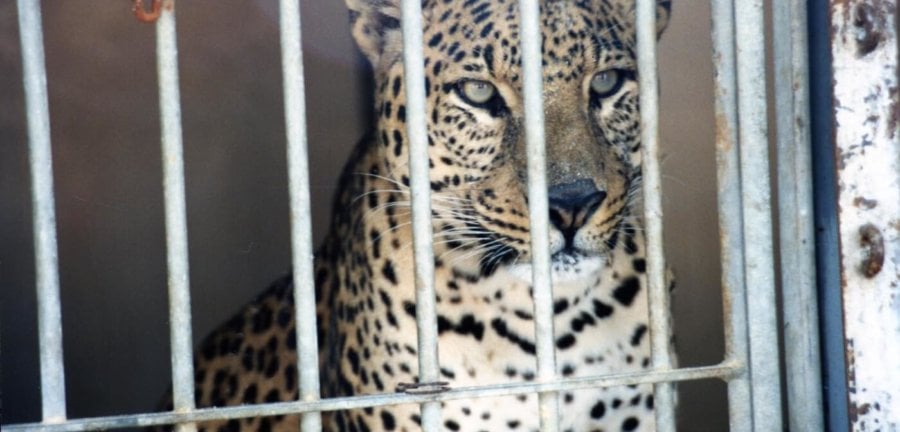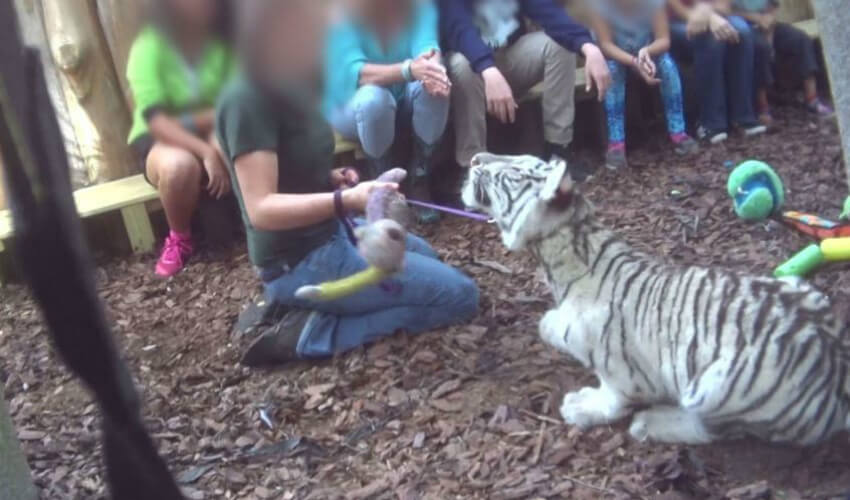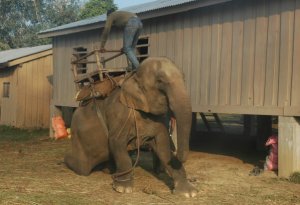Nearly 300 raccoons bred and slated to be sold as pets or for use in experiments swelter in stacked cages as the temperature hits 100 degrees. A circus is cited for more than 100 violations of the federal Animal Welfare Act (AWA) — including for failing to provide animals with adequate veterinary care, minimum space, shelter from the elements and clean water. A roadside zoo keeps an Asiatic black bear who suffers from painful dental disease and is at least 400 pounds overweight in a cramped concrete-floored cage.
Why are these outfits still allowed to continue conducting business as usual? And more importantly, what can compassionate people do to stop this cruelty?
The U.S. Department of Agriculture (USDA) licenses zoos, circuses, roadside displays, breeders and petting zoos and is supposed to enforce the AWA. But even with the power and resources of this federal behemoth, the AWA makes little difference in the quality of life for captive animals.
The law says that animals must be fed, watered and provided with shelter, yet for most species, cage-space requirements mandate only that the animals be able to stand up, lie down and move around a bit. Ugly weapons such as bullhooks and whips aren’t specifically prohibited, and it’s permissible to chain elephants so that they’re barely able to take a single step forward or backward for hours on end.
Many animals spend their interminable days in cages constructed of chain-link fencing and concrete floors. Even the requirement for water, which states that “potable water … must be provided as often as necessary,” is open to interpretation. Some species, including horses, ponies, reptiles, fish and other cold-blooded animals, are specifically excluded from the AWA. And although Congress made clear in 2002 that birds used for exhibition should be protected, the USDA does nothing to safeguard them.
Getting the government to take meaningful action against animal abusers is far from simple. Even when licensees rack up hundreds of citations, they’re allowed plenty of time to make “improvements.” The USDA routinely rubber-stamps license renewal applications, even if they have had animal escapes or attacks or have a long history of failing to comply with regulations. License revocations are extraordinarily rare, and fines are typically so nominal that animal exhibitors consider them just part of the cost of doing business.
According to a recent piece in The Washington Post, in just the last two years, the number of animal welfare citations issued by the USDA has declined dramatically. In 2016, the agency issued 4,944 citations. Two years later, that number had dropped by 65%, to 1,716. During that same period, the number of enforcement cases launched by the agency (which can lead to penalties including fines and license revocations) declined by 92%, to just 19.
Even when horrific abuses are caught on tape, the abusers won’t necessarily face significant repercussions or have their license revoked. One PETA video showing a circus trainer terrorizing elephants with a sharp metal bullhook and shocking them with an electric prod resulted in a paltry $400 fine.
The AWA was signed into law in 1966 and has been amended only a handful of times since then. The laws are unlikely to change anytime soon, but the public has the power to put an end to this senseless cycle of violence and abuse by refusing to patronize roadside zoos, circuses and other animal exhibitions. As long as people buy tickets, animals will continue to live and die in misery.







